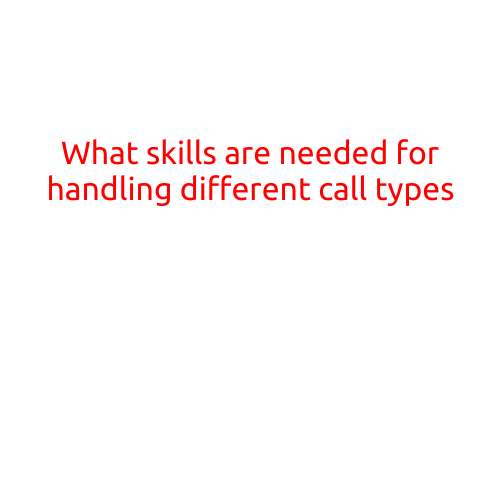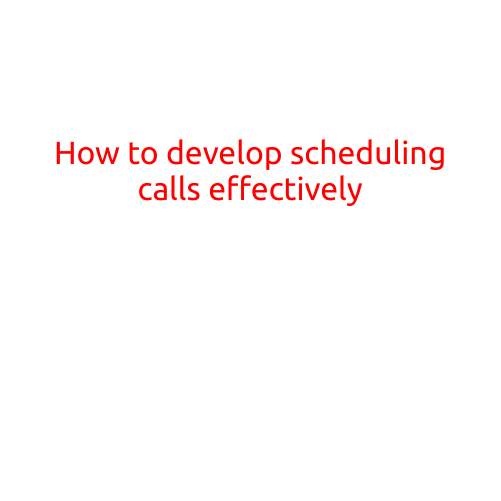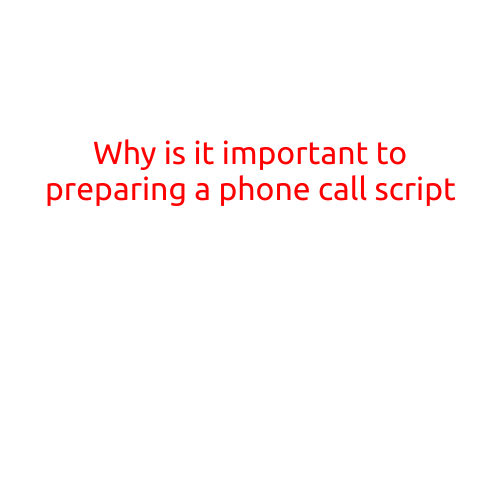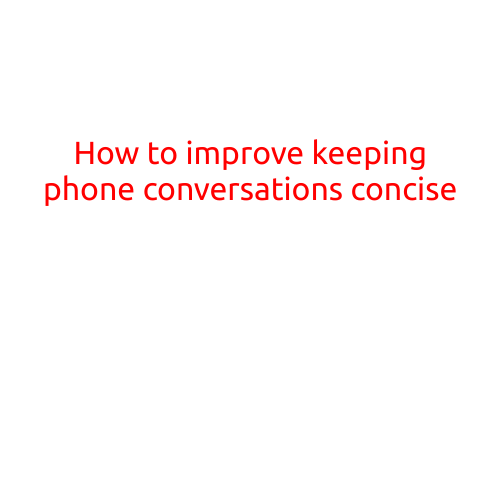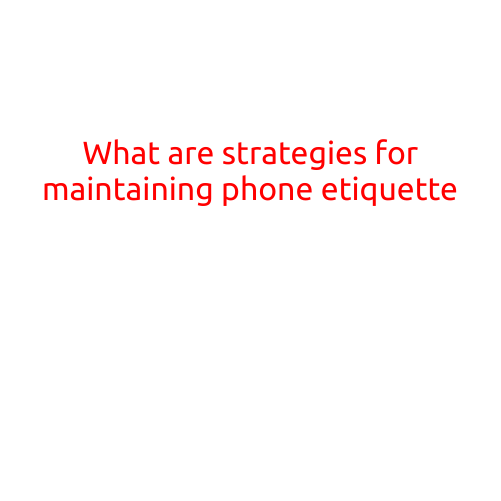
What are Strategies for Maintaining Phone Etiquette?
In today’s digital age, phones have become an essential tool for communication, and it’s more important than ever to maintain good phone etiquette. With the constant use of phones, it’s easy to forget the simple rules of phone courtesy, leading to awkward and embarrassing situations. In this article, we’ll explore the importance of phone etiquette and provide strategies for maintaining it in various scenarios.
Why is Phone Etiquette Important?
Phone etiquette is crucial in both personal and professional settings. It helps to build trust, respect, and a positive image, which are essential for maintaining relationships and achieving success. Good phone etiquette can also prevent misunderstandings, reduce conflicts, and promote a sense of professionalism.
Strategies for Maintaining Phone Etiquette
- Answer Calls Politely
When answering a call, greet the caller with a friendly “hello” or “hi, how are you?” This sets the tone for a positive conversation and shows respect for the caller’s time.
- Use a Friendly but Professional Tone
Be mindful of the tone you use when speaking to someone over the phone. Avoid using slang, jargon, or overly casual language, especially in professional settings. Use a friendly tone, but still maintain a level of professionalism.
- Listen Actively
When having a conversation on the phone, make sure to listen actively and attentively. Pay attention to what the caller is saying, ask questions, and respond thoughtfully.
- Be Respectful of Others’ Time
When making a call, be respectful of the receiver’s time. Keep your call brief and focused, and avoid interrupting or dominating the conversation.
- Use Proper Phone Manners
When on a call, avoid background noise, such as music or TV, and find a quiet and private space to talk. Turn off notifications, and mute the sound on your phone to prevent distractions.
- Practice Good Timing
Avoid making or receiving calls during inappropriate times, such as during work hours, when someone is in a meeting, or during a family gathering. Be considerate of the recipient’s schedule and priorities.
- Return Calls Promptly
When receiving a call, make sure to return the call promptly, especially if you’ve previously agreed to discuss something with the caller.
- Use Voice Mail Etiquette
When leaving a voicemail, introduce yourself, state the purpose of the call, and provide your contact information. Keep your message concise and avoid using jargon or technical terms.
- Be Aware of Your Volume
When speaking on the phone, be mindful of your volume. Avoid speaking too loudly, as this can be distracting or annoying to others in the vicinity.
- Follow Up
After a call, follow up with an email or a handwritten note to thank the caller for their time and reiterate any agreements or points discussed.
Conclusion
Maintaining good phone etiquette is crucial for building trust, respect, and a positive image. By following these strategies, you can improve your phone communication skills, prevent misunderstandings, and promote a sense of professionalism. Remember to always be respectful, considerate, and mindful of others’ time and priorities.
